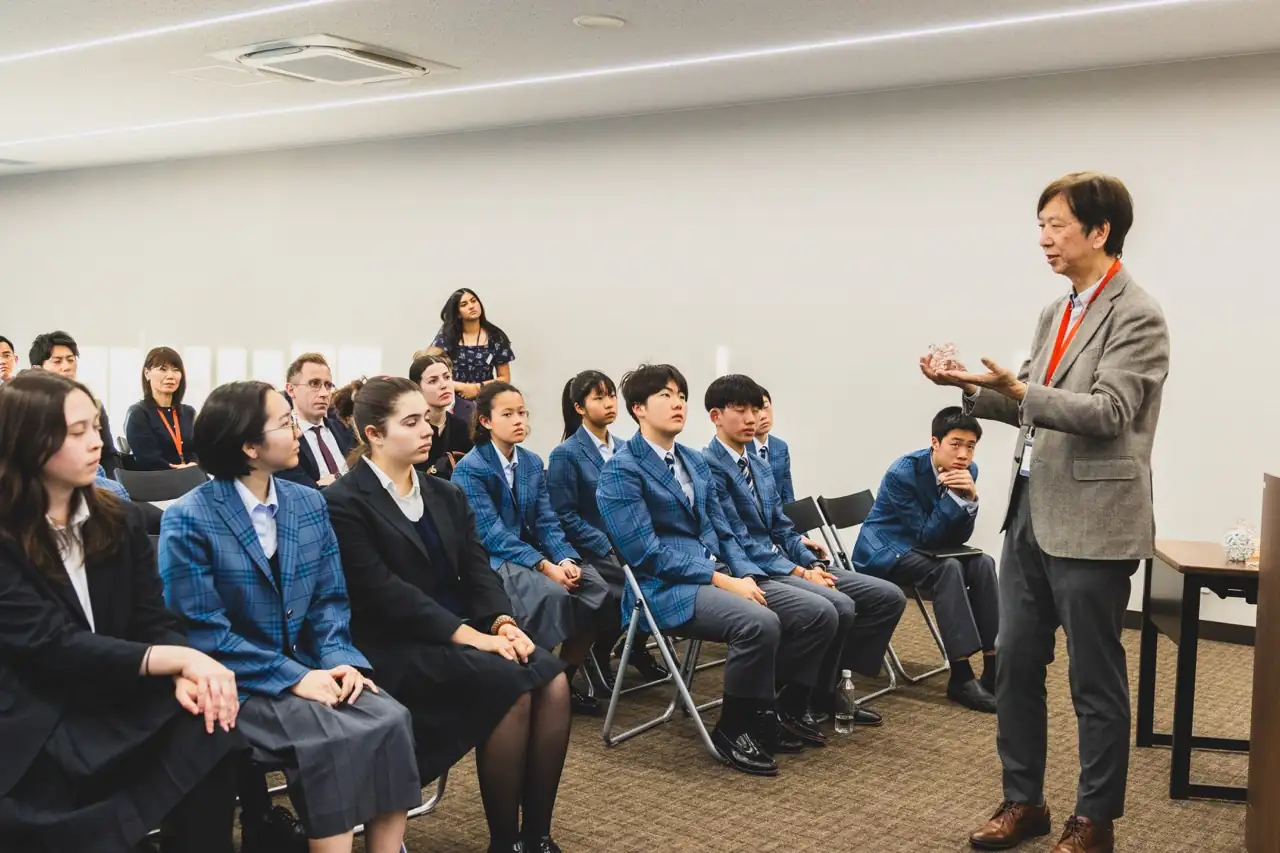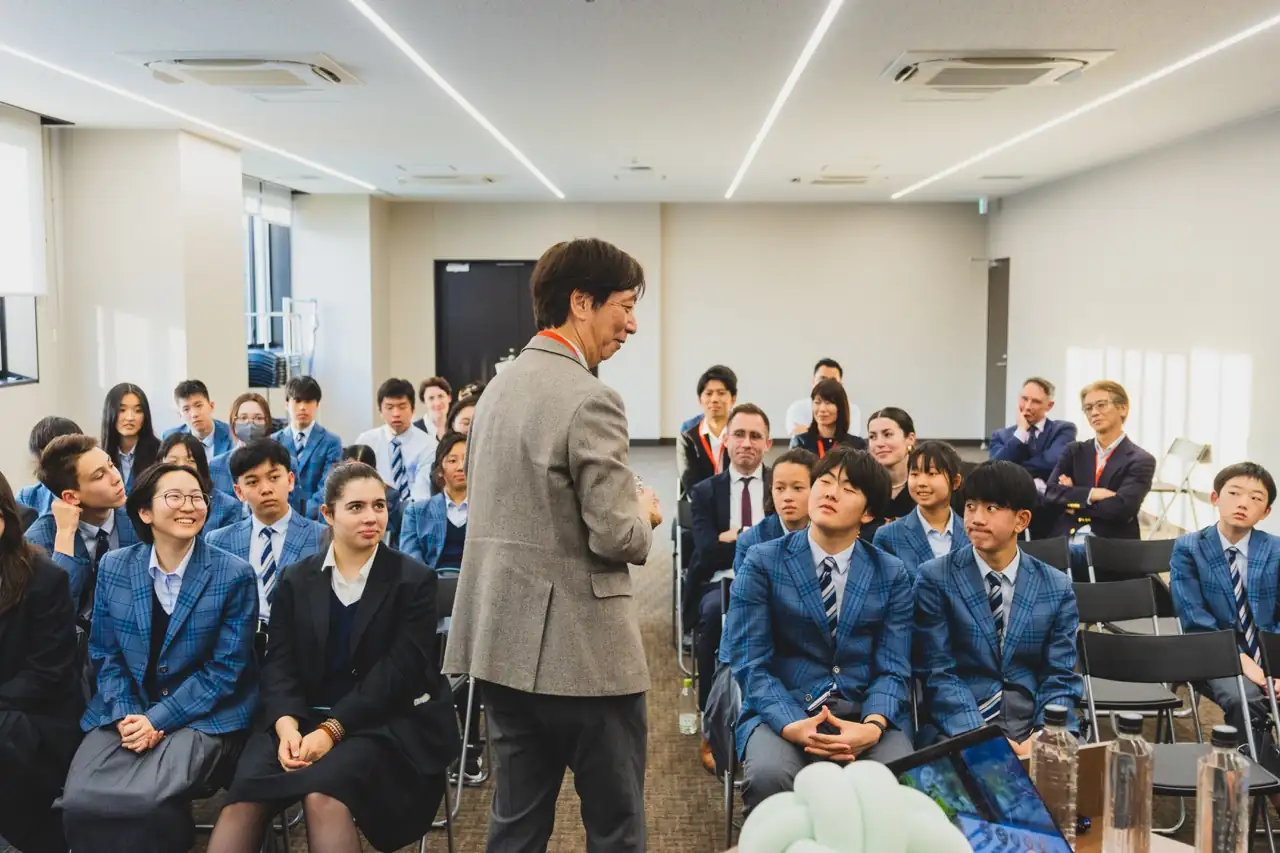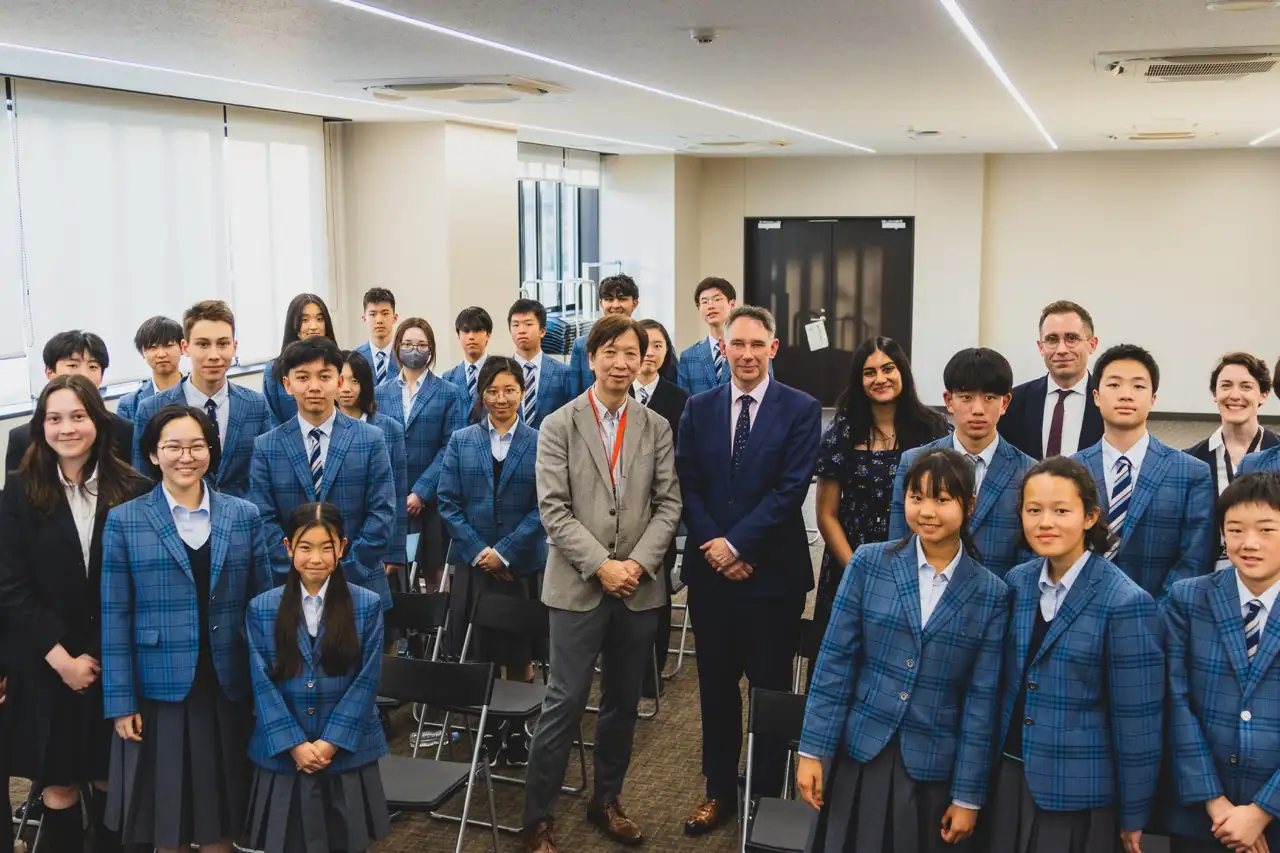One of our beliefs at RSJ is that great learning occurs not only within classrooms but also through genuine connections with the outside world. We were recently honored to welcome Professor Makoto Fujita, one of Japan’s most celebrated chemists and a distinguished figure at the University of Tokyo, for a special lecture with our students.
Professor Fujita, known internationally for pioneering work in self-organisation chemistry, gave an engaging and accessible talk titled “Chemistry: What is Chemistry?” His message was clear and inspiring: “Chem is try.” In other words, chemistry, and science more broadly, is about continually trying, exploring, and discovering the unknown.
Students were captivated by Professor Fujita’s reflections on the nature of scientific research, where unlike textbooks, there are no set answers. He described research as a game full of uncertainty, where the joy of discovery keeps scientists motivated. It was a powerful reminder that curiosity and courage to try are at the heart of innovation.

In sharing his own journey – from a young graduate at Chiba University to a global scientific leader – Professor Fujita gave students insight not just into chemistry, but into a life dedicated to learning and discovery. His current work, based at the newly established Mitsui Link Lab in Kashiwa-no-ha, represents a vibrant intersection of science, architecture, and city development, a project that reflects his belief in collaboration across fields.
This lecture was made possible through a partnership with Mitsui Fudosan, a visionary organisation behind innovation-driven urban development. We are proud to be connected with collaborators like Professor Fujita and Mitsui Fudosan, who are bringing not just expertise but inspiration into the RSJ learning community.
At RSJ, we are building a culture of inquiry, where our students do not just learn about the world, but also actively engage with those shaping its future. Events like this highlight the powerful role partnerships play in creating meaningful educational experiences. They also profoundly enrich our academic offering, by giving pupils an opportunity to expand their thinking far beyond the prescribed curriculum.
Partnerships like these hand our pupils the tools and inspiration to ask searching questions, to imagine what is possible for their future, and to build relationships that can help make that future vision a reality. This is fundamental to our Whole Person Whole Point ethos – where we do not just assist our pupils in excelling academically. We also help to make them ‘world-ready’ – preparing them for future global leadership.


We extend our heartfelt thanks to Professor Fujita and all who made this opportunity possible. We look forward to continuing these enriching collaborations and welcoming more pioneers of science and innovation into our school family.
